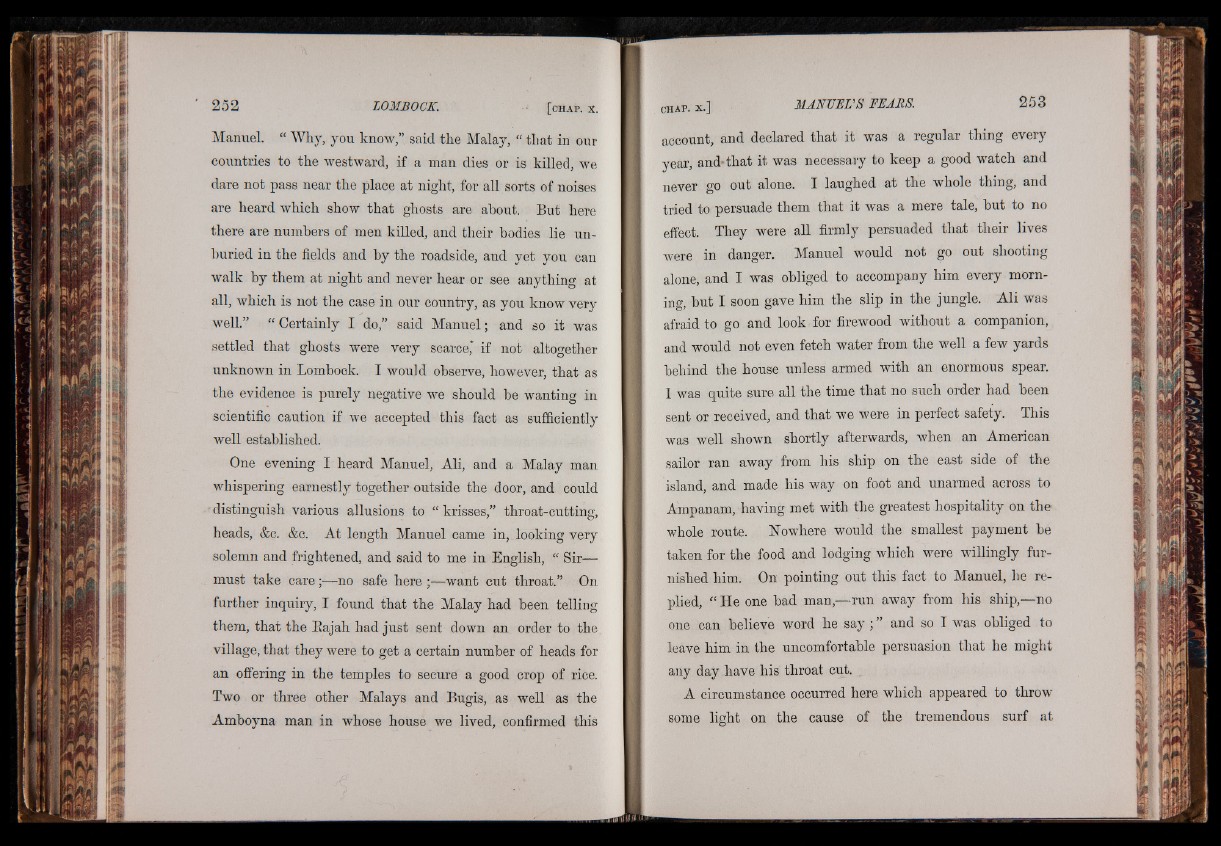
Manuel. “ Why, you know,” said the Malay, “ that in our
countries to the westward, if a man dies or is killed, we
dare not pass near the place at night, for all sorts of noises
are heard which show that ghosts are about. But here
there are numbers of men killed, and their bodies lie unburied
in the fields and by the roadside, and yet you can
walk by them at night and never hear or see anything at
all, which is not the case in our country, as you know very
well.” “ Certainly I do,” said Manuel; and so it was
settled that ghosts were very scarce,* if not altogether-
unknown in Lombook. I would observe, however, that as
the evidence is purely negative we should be wanting in
scientific caution if we accepted this fact as sufficiently
well established.
One evening I heard Manuel, Ali, and a Malay man
whispering earnestly together outside the door, and could
distinguish various allusions to “ krisses,” throat-cutting,
heads, &c. &c. At length Manuel came in, looking very
solemn and frightened, and said to me in English, “ Sir—
must take c a r e n o safe here ;—want cut throat.” On
further inquiry, I found that the Malay had been telling
them, that the Bajah had just sent down an order to the
village, that they were to get a certain number of heads for
an offering in the temples to secure a good crop of rice.
Two or three other Malays and Bugis, as well as the
Amboyna man in whose house we lived, confirmed this
account, and declared that it was a regular thing every
year, and*that it was necessary to keep a good watch and
never go out alone. I laughed at the whole thing, and
tried to persuade them that it was a mere tale, but to no
effect. They were all firmly persuaded that their lives
were in danger. Manuel would not go out shooting
alone, and I was obliged to accompany him every morning,
but I soon gave him the slip in the jungle. Ali was
afraid to go and look for firewood without a companion,
and would not even fetch water from the well a few yards
behind the house unless armed with an enormous spear.
I was quite sure all the time that no such order had been
sent or received, and that we were in perfect safety. This
was well shown shortly afterwards, when an American
sailor ran away from his ship on the east side of the
island, and made his way on foot and unarmed across to
Ampanam, having met with the greatest hospitality on the
whole route. Nowhere would the smallest payment be
taken for the food and lodging which were willingly furnished
him. On pointing out this fact to Manuel, he replied,
“ He one bad man,—run away from his ship,—no
one can believe word he say ; ” and so I was obliged to
leave him in the uncomfortable persuasion that he might
any day have his throat cut. w
A circumstance occurred here which appeared to throw
some light on the cause of the tremendous surf at